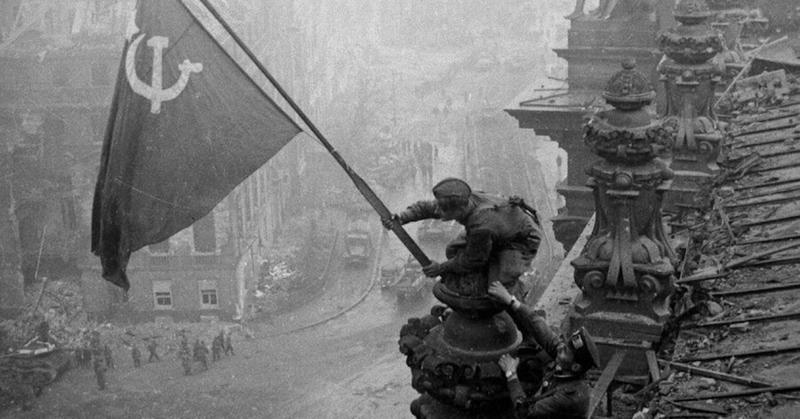The Battle Of Berlin: What Happened And How Hitler Was Finally Defeated
By | October 1, 2020

As brutal and gruesome as World War II was, the most vicious of the fighting was saved for its final days. In the Battle of Berlin, the Soviet Army pounced on the German stronghold and turned the city into rubble with no care for human life, property, or even art. As Hitler hid underground and Berliners braced for the worst, the full horror of war was on display in this final push to defeat the Nazis.
The Last Days Of World War II
At the onset of the Battle of Berlin on April 16, 1945, Hitler was living in a dreamworld in his underground bunker. After hearing about the death of FDR, he thought that it was only a matter of time before the Allies fell apart and his Nazi scientists came up with some kind of super weapon. Against the wishes of his advisors, he stayed in Berlin. He was kidding himself: The end of the war was in sight, and with supplies and resources dwindling in Germany, the Nazis readied themselves for a gruesome final stand against the Allies.

The Race To Berlin
Every country in the Allied powers wanted to get to Berlin first in spring 1945, but the U.S., Britain, and Russia were most keen. Taking the crown jewel of Germany wouldn't just put a full stop to the war; it would grant whichever country pulled it off bragging rights for years to come. The U.S. military fought through the German countryside until they reached Nuremberg, where the teenage members of the Hitler Youth kept them at bay for four days straight until the city fell on April 20. From there, they headed to Berlin, and along the way, they uncovered over 100 concentration camps, including Buchenwald and Flossenburg, littered with charred skulls, piles of personal effects, and crematoriums filled with hair and teeth.
With U.S. forces poised to take Berlin, then–Allied Supreme Commander Dwight D. Eisenhower made a bold move: He ordered his troops to stand down 50 miles outsides the city, allowing the Soviets to take it instead. Knowing that Berlin would be handed over to the Soviet Union anyway, he was committed to keeping his casualties as low as possible.

Bombs Over Berlin
On April 20, Hitler's birthday, the Soviets thrust into Berlin, bombarding the city with explosives as the Führer awarded the Iron Cross to a group of Hitler Youth who remained steadfast to his dying cause before he ran back underground to debate the best way to take his life. Meanwhile, Marshal Georgy Zhukov circled Berlin, squeezing the remaining German fighters on all sides.
The Red Army won more ground each day, but in the first week, they lost some 30,000 soldiers. Apparently, Eisenhower made the right call. They were met with 45,000 fighters from the Wehrmacht, SS, Hitler Youth, and the Volkssturm militia, but try as they might, the Germans were outnumbered, outgunned, and nowhere near as well trained as the Soviets.

Scorched Earth
On April 26, the Tempelhof Airport fell. Three days later, the Soviets captured Gestapo headquarters. On April 30, they hoisted a Soviet flag over the former home of the official secret police of Nazi Germany. One surviving German soldier remembered:
There was no escape. The second echelon ... was the worst. They did all the raping and plundering. They went through all the houses and took whatever they wanted. They stripped homes of every single possession, right down to the toilets.

The End Of The Battle Of Berlin
While all this was going on, Hitler finally faced reality and went on his famous honeymoon in a cyanide capsule. Hitler's suicide put Grand Admiral Karl Doenitz in charge of the German military and turned Joseph Goebbels into the German chancellor, which would have been disastrous for Germany (as the two leaders disagreed on how many German citizens they were willing to sacrifice to the fight) if Goebbels hadn't followed Hitler's example on May 1. With Goebbels out of the way, Doenitz finally surrendered to the Russian forces after suggesting to the remaining German troops that they flee Berlin in the middle of the night.
Five days later, Germany officially and unconditionally surrendered to the Allies. Over the course of the Battle of Berlin, the Soviets lost at least 81,116 soldiers, with hundreds of thousands more wounded, while the German military lost as many as 458,080 fighters and 125,000 civilians.

